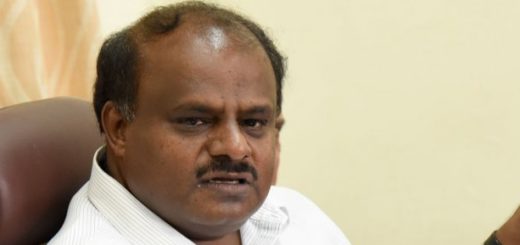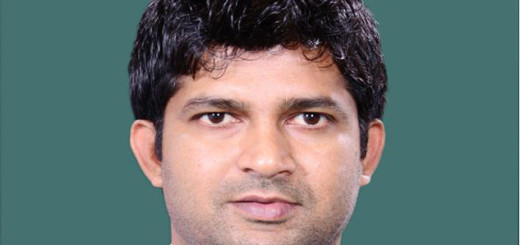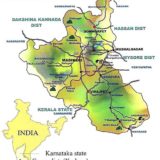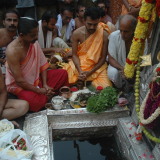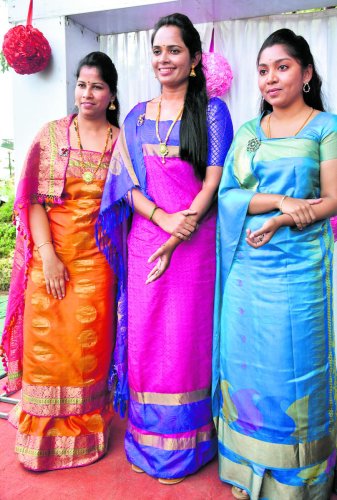
By P.T. Bopanna
The recent ‘selfie’ of Kodagu’s (Coorg) top women officers in Karnataka was a great social media story, but the fact remains that Kodagu’s official machinery is a disgrace as most of the officials are corrupt to the core.
However, there is no denying the fact that the three women officers (in the picture wearing traditional Kodava sari) have done a great job during the 2019 floods and landslides. The trio have shown what teamwork and commitment can do to mitigate the sufferings of people.
In the last few months, key officials of the district administration have faced serious corruption charges leading to their suspension. This reporter had a first-hand experience of the extent of corruption in government offices.
But the only saving grace is that the top three officials, including deputy commissioner Annies Joy, Zilla Panchayat CEO K Lakshmipriya and superintendent of police Dr Suman D Pennekar, have tried to redress the grievances of the people, even though the administrative machinery is steeped in corruption.
The level of corruption can by gauged by the fact that the tashildar of Virajpet taluk was trapped last month while accepting Rs 2,000 bribe. The tashildar, Purandara, and his assistant were trapped while accepting part payment from a resident for land conversion.
Imagine this unscrupulous revenue inspector of Madikeri tashildar office, J.T. Satish, who encroached on government land to build a resort by excavating a hillock at Talacauvery, triggering a crack in the hillock and fear among the residents living in the area. Satish illegally chopped trees in the area which led to protests by the local residents. He has been since suspended from service.
What can get worse than the Zilla Panchayat executive engineer Srikanthaiah being accused of depositing relief fund belonging to the government to the tune of Rs 21 crore being deposited in his private bank account without obtaining prior permission from his superiors. He has also been suspended.
It may be recalled that deputy conservator of forest M.L. Manjunath of Madikeri Division who was suspended in June reportedly for un-authorizedly issuing permission to fell 800 trees in K. Nidugani Gram Panchayat of the district, is reportedly trying to get back into a key post in Kodagu through a local politician, leading to gossip on the amount involved for the posting.
I had a personal experience of the extent of corruption in government offices, especially at the Virajpet taluk office where interestingly the tashildar was caught while accepting a bribe.
I had given an application in April for correcting my name in the RTC of my land-holding. My name in the record was wrongly mentioned while being uploaded into the computer system by the officials.
Though this is a simple procedure which can be fixed at Virajpet, I was told by the computer section operator that it was referred to the assistant commissioner at Madikeri. Since there was no response after repeated queries at Virajpet, I sent an email to assistant commissioner T. Javare Gowda in July. I also sent an SMS message to him on the matter. Both his mail ID and phone number are shared on Kodagu district administration website. I am yet to receive a response from him.
During my visits to Virajpet taluk office, I found agents (touts) walking in the corridors, to ‘fix’ things for a price. It is time CCTV is fixed in government offices in Kodagu to check the touts. But nothing much can be done when the tashildar himself collects bribe.
But since we have a good team of officials at the helm of Kodagu district administration, it is time they concentrated on tackling the menace of corruption.
Compare the state of affairs in Kodagu with what the late veteran journalist C.M. Ramachandra wrote about his sojourn when Kodagu was a separate ‘part C state’ in early 1950s.
Ramachandra wrote: All through the Poonacha regime (C.M. Poonacha was the chief minister of the Coorg State), the relationship between the government and the people was exemplary and cordial.
Because of its tiny size, people from the farthest tip in the South Kutta, near the Karntaka-Tamil Nadu-Kerala tri-junction, could reach the capital at midday, finish their call on the administration and go back to their home early in the evening. There was no corruption.”

